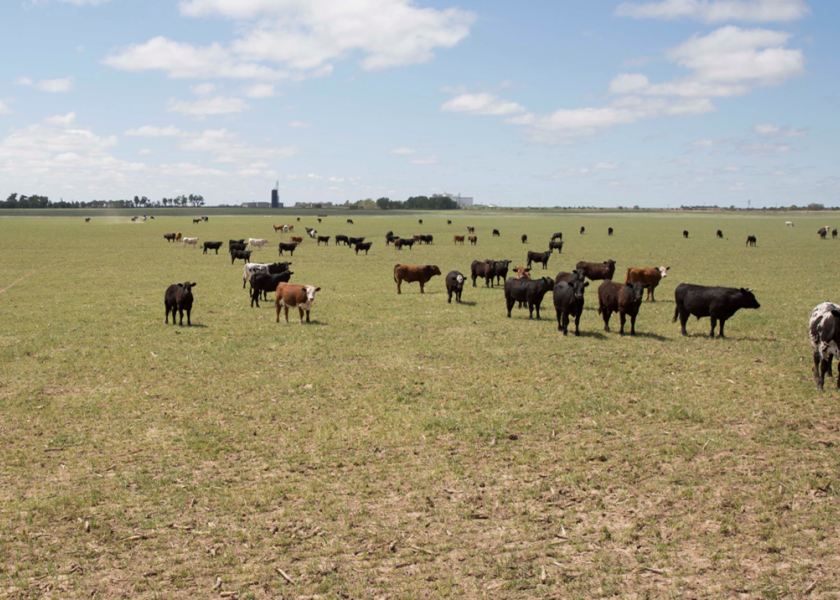5 Reasons You Need Your Veterinarian More Than Ever During Drought

During drought, beef producers might find a best friend in their local veterinarian, says University of Missouri Extension veterinary toxicologist Tim Evans.
“Although veterinarians always provide a valuable service to animal owners, their value to livestock producers becomes increasingly important during drought, high heat and limited forage availability,” says Evans.
While there are many good online drought resources such as the MU’s Integrated Pest Management agriculture drought resources page at https://ipm.missouri.edu/drought, there is no substitute for a working relationship with a trusted local veterinarian who is familiar with you and your operation, he says.
Veterinarians can help in five main ways during drought:
1. Assist livestock producers in making culling decisions.
2. Advise on water quality issues and feeding alternative forages, especially those that might be toxic to livestock.
3. Diagnose, treat and prevent water- and forage-associated intoxications in live animals.
4. Perform postmortem exams on dead animals.
5. Recommend herd health programs, including the use of various feed additives, to keep livestock healthy during a drought.
Veterinarians and MU Extension livestock specialists and agronomists can help herd owners take an integrated approach to deciding how to cull cattle to match available feed and water resources in drought, Evans says.
Working together, local veterinarians and MU Extension personnel, including agricultural business specialists, can also help producers decide how to best make use of their financial resources. This assistance might include decisions on what feedstuffs to buy and/or grow to best meet the current and future nutritional needs for cattle in different stages of development. These types of consultations are especially important for preventing nitrate/nitrite poisoning in ruminants.
Weather changes can often affect water quality in ponds. Harmful blue-green algal blooms in drought-stricken ponds can produce toxins causing seizures and convulsion or liver damage. “Do not let your livestock drink from ‘scummy’ ponds,” says Evans. Veterinarians can inspect suspect ponds and take appropriate samples to help determine if the pond water is safe for consumption by livestock.
Likewise, weeds may be the only plants to survive and thrive in dry pastures during drought, creating a possible toxic risk for livestock. Evans says animals usually avoid eating many common Missouri weeds, especially if better forages are available. However, when pasture is scarce, livestock will eat what they can find and are more likely to eat toxic weeds in baled or ensiled forages used as alternative drought feedstuffs.
In the event of the sudden death of an animal, consult with your veterinarian and ask for a necropsy exam, Evans says. It’s the only way to know for sure how to protect your investment from future risks.







